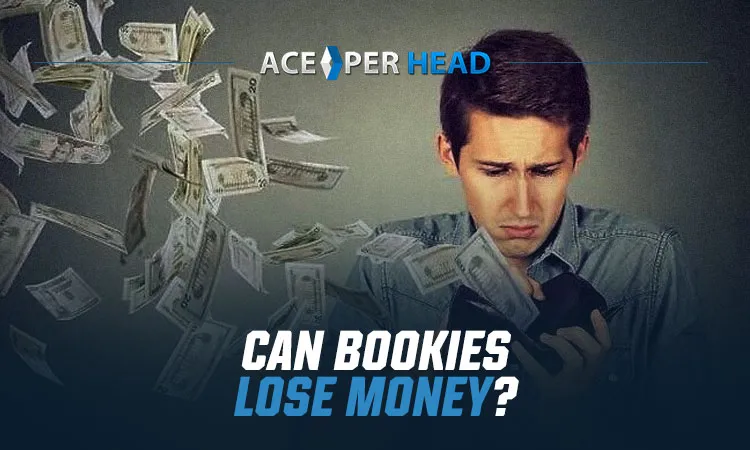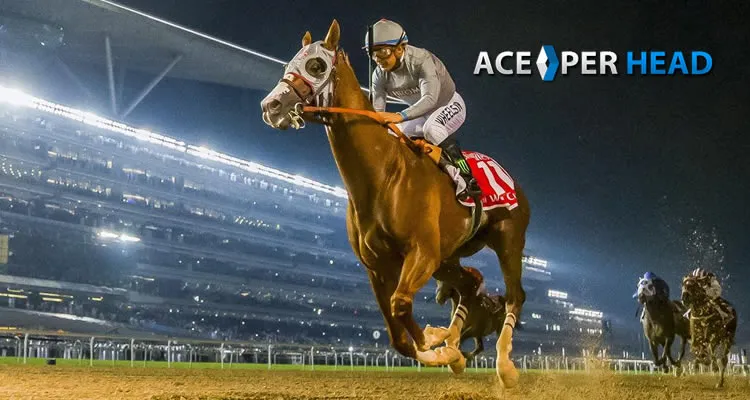
Bookmakers can make up to $100,000 per week. This amounts toabout $5 millionannually. However, bookies can also lose money, so it’s important that you’re on your A-game if you want to turn this handsome profit.
Here, we’re going to talk about the ways that bookies lose money. We’re also going to tell you how you can avoid common pitfalls by setting good odds, taking a great vig, and investing in the right sportsbook software. Read on to ensure that our budding bookie business is lucrative!
Can Online Bookmakers Lose Money?
The simple answer to this question is “yes.” While you may have heard that the housealwayswins, that’s a myth. If players didn’t win sometimes, no one would ever go to sportsbooks.
It’s important to note that individual winners aren’t going to lose you much money. You’ll already have accounted for these wins and set aside funds to accommodate them. Even if you have multiple winners in a single sporting event, you’re still going to turn an overall profit assuming that you plan well.
Improper planning is what will ultimately lose you money and run your sportsbook into the ground.
How Do Bookies Lose Money When Setting Lines?
Bookies lose money when they don’t know how to set appropriate odds. Odds are the likelihood of a certain outcome taking place.
In a Cowboys vs Steelers game, you might determine that the Cowboys have a greater chance of winning. You might realize that they are twice as likely to win as the Steelers. This gives them 2:1 odds.
You can use this information to set lines. Lines are what players will see and bet on.
Setting Bad Lines
Setting improper lines is a core reason that bookies lose money.
In the standardmoney line format, also called American odds, the line will consist of 2 numbers.
One will have a (-) sign in front of it, indicating that the team is a favorite. Favorites are likely winners with high odds. They’re safe bets, so you can’t afford to have too high a payout.
The other will have a (+) sign in front of it, indicating that the team is an underdog. Underdogs have a lower likelihood of winning. This means that you as a bookie want to give out higher payouts as incentives for underdog bets.
In the aforementioned Cowboys vs Steelers game, let’s say that odds look like this:
- Cowboys -500
- Steelers +300
The favorite team’s number indicates how much you need to bet to win $100. If someone put down $500 on the Cowboys and won, they would get $600 back ($500 + their original $100 bet). A $100 bet would only get them $20 in winnings.
If you make the favorite team’s payout too high, you will likely lose a lot of money. People are more likely to win on it, so a low payout will mitigate your risk and help you not to lose too much. If they lose, that’s better for you, but you should operate under the assumption that you’ll lose favorite bets.
The underdog’s team number shows how much someone stands to make from a $100 bet. If someone were to bet on the Steelers, they have low chances of winning… but they can triple their bet. After all, for every $100 they put down, they can get back $400 ($300 + their initial $100).
How Bookies Lose Money on Underdog Bets

An underdog bet has an extremely high payout…butthey’re the bets you want people to make.
This is because people are unlikely to win them. You’re going to make a lot of money when they lose.
However, there is a slight chance that an underdog team might win. There’s not much you can do about this. What youcando is move and adjust your lines so you don’t face financial downfall if this happens.
Your underdog payout should solely depend on the chances of the team winning. If a team is an underdog with a 40% chance of winning, you don’t want to offer too high a payout. $110 for every $100 bet is a good figure here.
But if the team has a slim chance of winning – say, 10% – you can afford to go a little higher. Perhaps in this instance, you’ll offer $200 for every $100 bet.
This will appeal to those who use online sportsbooks since they see that they can make a hefty sum. You can remain competitive in the sports bookmakers market.
You will lose money if you offer too high a payout on underdog bets, so make sure that your figures are based on real facts about the team. Do your research and be careful.
Bookies and the Vig: Can a Bad Vig Lose Money?
The vigorish also called the “juice” or “vig,” is a primary way that bookies make money. It’s an additional sum that people need to add onto bets as a service fee for using your sportsbook.
It shouldn’t be too large, but this is money that you’ll retain even if you win. This is a surefire way to ensure that you’re making at least a little money off every bet. A VIG mitigates your loss from winning bets so that you can be profitable.
Many budding bookies forget about the vig. This is a prime way that you can lose money. Some bets will be really hard hits to your business if there is no vig.
Too low a vig also can hurt you because you won’t get enough to mitigate risk. However, if you go too high you’re going to lose money by driving people away. It’s a balancing act.
10% is a pretty standard vig that won’t draw people away from your sportsbook. So, you would tack a $10 fee onto every bet of $100. A $50 bet would come with a $5 fee and a $1000 bet would come with a $100 fee.
Make Money Off Sporting Events
Bookies can lose money just as any other business owner can. Luckily, there are surefire ways to mitigate your risk and turn a consistent profit.
Pay per head bookie services only charge you for players that actively work with your sportsbook. Unlike a flat fee subscription, they’re scalable. You can lose money with the wrong payment method, but businesses like Ace Per Head can help keep you profitable.
We’re committed to providing you with top-notch, fully-managed PPH services. Request a6-week free promoto see how we can help sports bookmakers get their businesses off the ground.




 Ace Per Head has been in the online bookmaking services business since 1998 running one of the top-rated and most trusted brands in the pay per head industry. We give our bookie agents the personalized dedicated service they deserve.
Ace Per Head has been in the online bookmaking services business since 1998 running one of the top-rated and most trusted brands in the pay per head industry. We give our bookie agents the personalized dedicated service they deserve. 